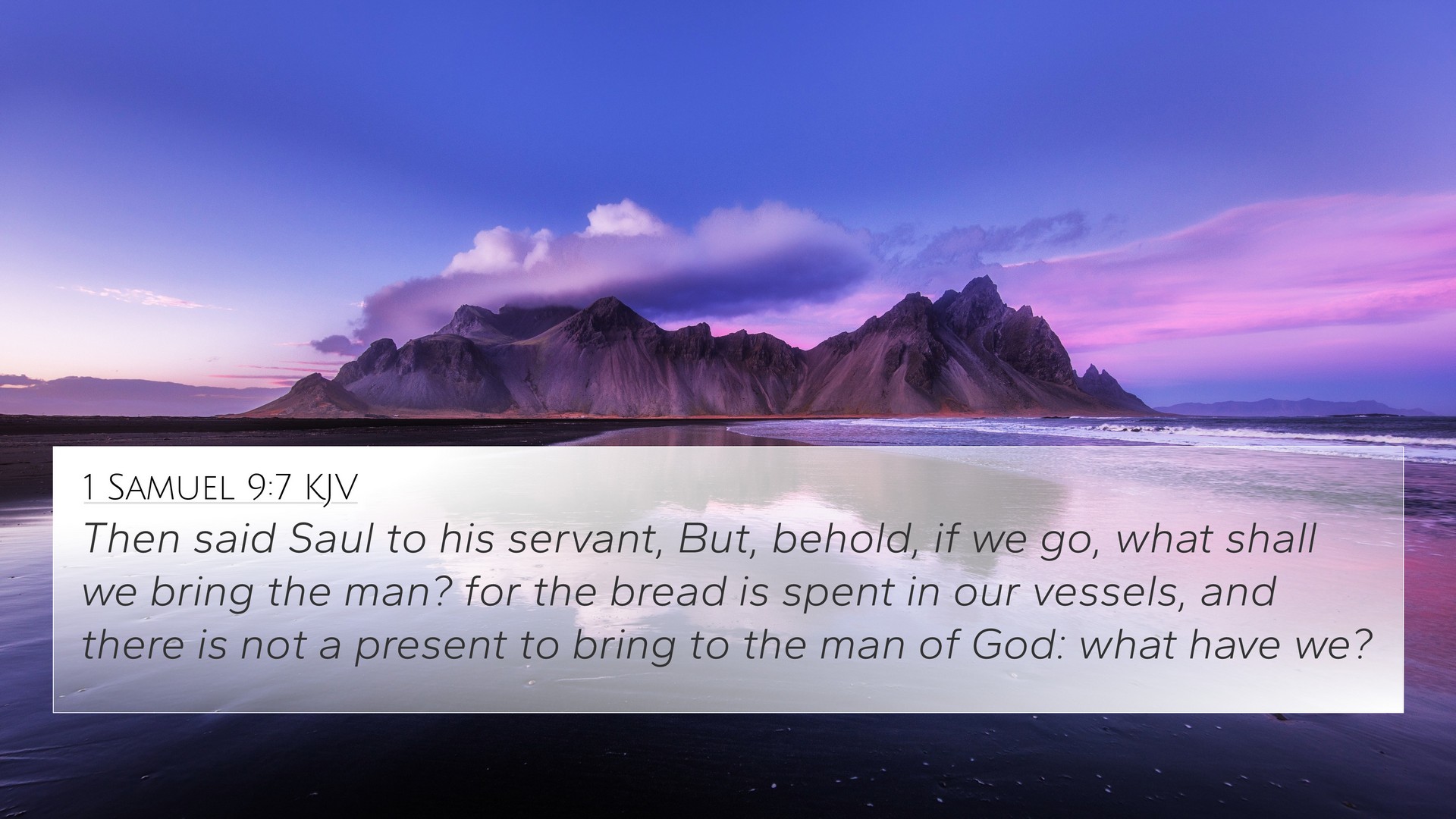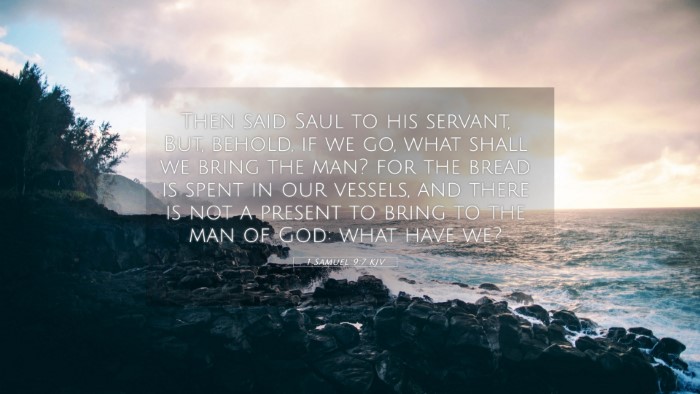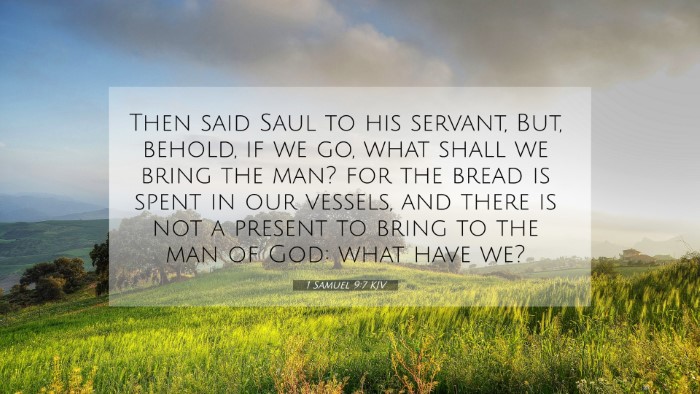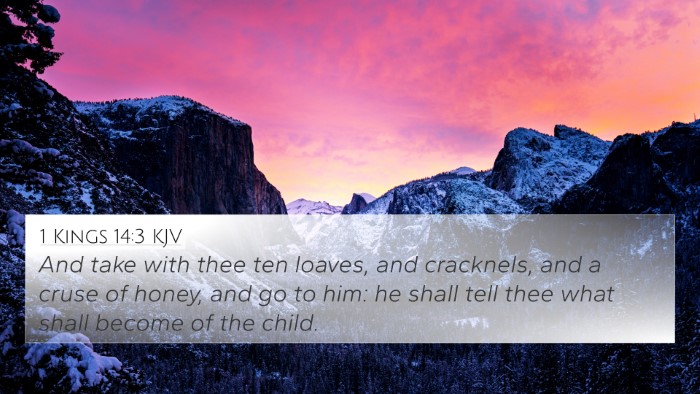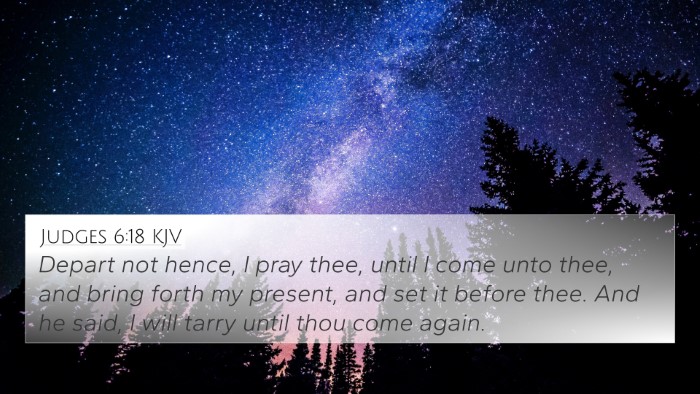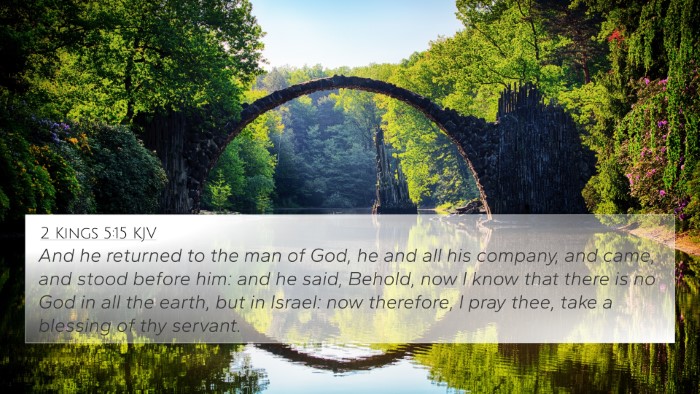Understanding 1 Samuel 9:7
1 Samuel 9:7 states: "Then said Saul to his servant, But, behold, if we go, what shall we bring the man? For the bread is spent in our vessels, and there is not a present to bring to the man of God: what have we?" This verse takes place in a significant context, as Saul and his servant are on a mission to find Saul’s father's lost donkeys, leading them to seek guidance from the prophet Samuel.
Summary of Insights
- Contextual Significance: Both Matthew Henry and Albert Barnes emphasize the importance of this moment in Saul's journey, showing his initial humility and concern for etiquette when approaching a man of God. This reflects the larger theme of God choosing a king among humble beginnings.
- Saul's Leadership Qualities: Adam Clarke notes that this verse illustrates Saul’s uncertainty regarding his impending kingship and portrays him as a man who understands the significance of proper offerings and respect towards spiritual leaders.
- Relational Dynamics: The dialogue between Saul and his servant signifies the collaborative effort of seeking God's will and shows how individuals (like Saul) can often feel inadequate when confronting the divine.
- Provision and Preparation: The mention of lacking provisions serves as a metaphor for Saul's spiritual inadequacy, which resonates with many biblical themes of reliance on God for guidance and sustenance.
Bible Verse Cross-References
- 1 Samuel 3:20: "And all Israel from Dan even to Beersheba knew that Samuel was established to be a prophet of the Lord."
This emphasizes Samuel's role as a significant figure in conveying God's messages.
- 1 Samuel 16:1: "And the Lord said unto Samuel, How long wilt thou mourn for Saul?"
This verse signifies the transition from Saul to David, highlighting the importance of God's choices in leadership.
- 1 Samuel 10:8: "And thou shalt go down before me to Gilgal; and, behold, I will come down unto thee, to offer burnt offerings."
This indicates the necessity of offerings in approaching God, echoing Saul’s concerns in 9:7.
- Exodus 23:15: "Thou shalt keep the feast of unleavened bread... And none shall appear before me empty."
This cultural backdrop sheds light on the expectations of offerings when approaching religious figures.
- 2 Samuel 2:1: "And it came to pass after this, that David enquired of the Lord, saying, Shall I go up into any of the cities of Judah?"
This shows a pattern of leaders in Israel seeking God’s direction, connecting back to Saul’s inquiry in 1 Samuel 9.
- Proverbs 3:6: "In all thy ways acknowledge him, and he shall direct thy paths."
Saul’s journey to seek Samuel aligns with this principle of seeking guidance from God.
- James 1:5: "If any of you lack wisdom, let him ask of God."
This New Testament verse reiterates the importance of seeking divine counsel, mirroring Saul's actions.
- Matthew 7:7: "Ask, and it shall be given you; seek, and ye shall find."
This connection shows the biblical promise that seeking God will result in guidance, contextualizing Saul's journey.
- Galatians 6:7: "For whatsoever a man soweth, that shall he also reap."
This principle applies to Saul’s situation where his actions (or lack thereof) in approaching the prophet have direct implications on his future.
- Philippians 4:19: "But my God shall supply all your need according to his riches in glory."
This verse offers reassurance of God's provision for those who earnestly seek Him, resonating with Saul's worries about offerings.
Thematic Bible Verse Connections
- Seeking Guidance: This theme can be seen through various figures in the Bible, such as Moses in Exodus 18 and David in numerous psalms, emphasizing the necessity of divine guidance.
- Spiritual Leadership: The contrast between Samuel and Saul provides rich material for comparative Bible verse analysis, exploring the characteristics of true leadership as outlined in books like Proverbs and 1 Peter.
- Humility and Service: Each of these connections illustrates the biblical theme of humility in leadership and reliance on God, paralleling Saul’s modest approach with that of Christ in the New Testament.
Conclusion
1 Samuel 9:7 serves as a profound example of the qualities expected in those who seek divine guidance. It highlights the character of Saul as he stands on the precipice of leadership, emphasizing the need for respect and preparation in spiritual matters. The cross-referencing with other scriptures enriches our understanding of the interconnectedness within biblical texts, revealing how the themes of guidance, leadership, and humble service resonate throughout Scripture.
